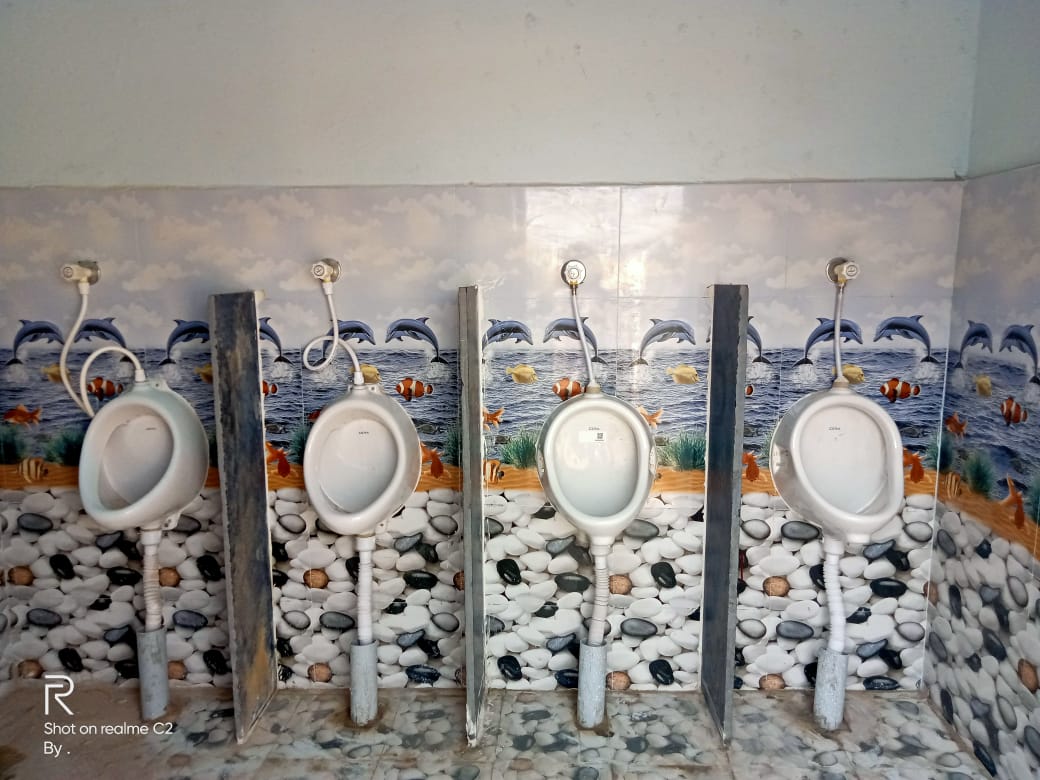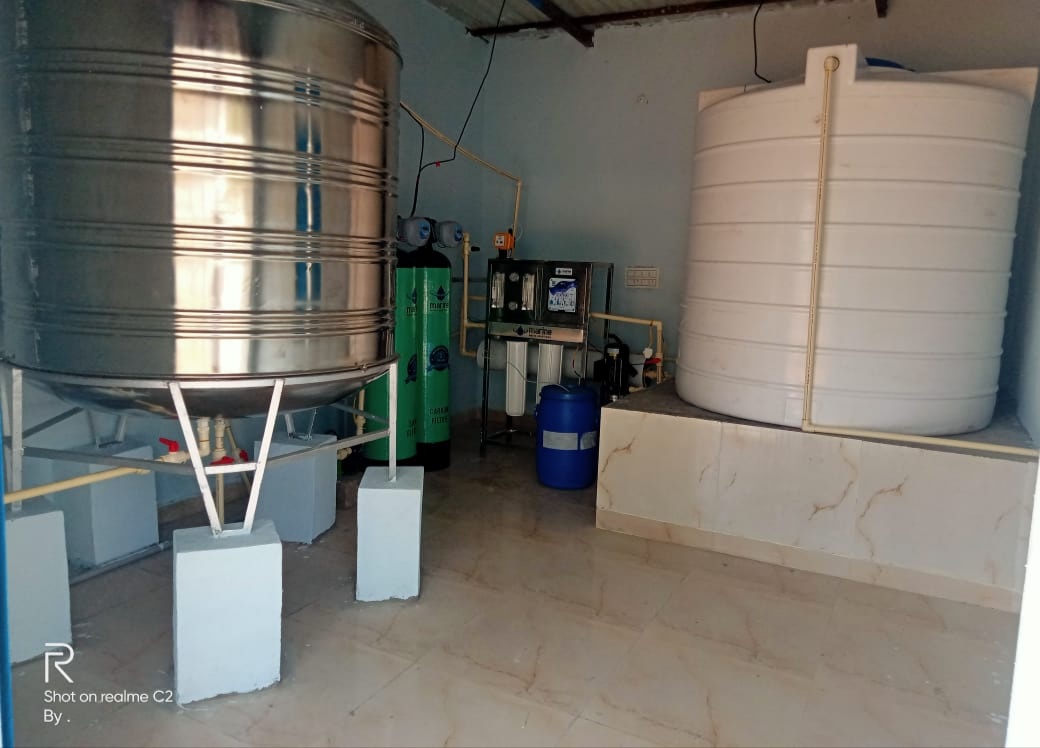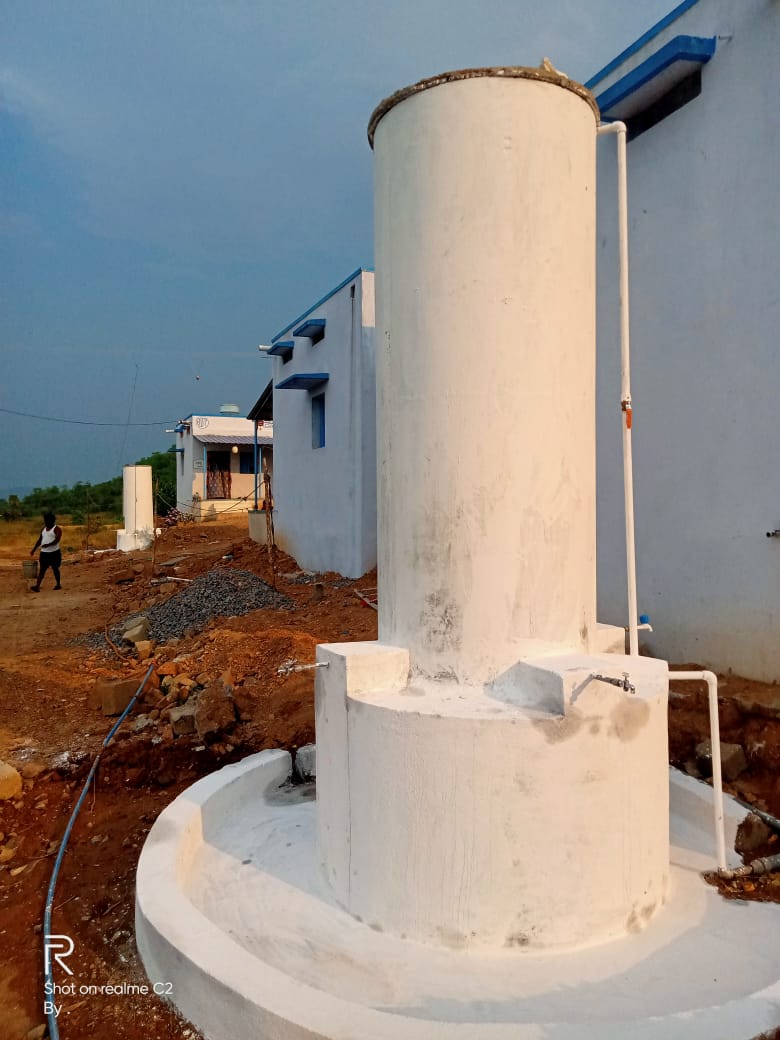Bhupalpally District, Telangana State, India
In collaboration with

April 2024-April 2025
We installed a reverse osmosis (RO) water purification plant, safe toilet facilities at the school, and a piped water supply system for a marginalized rural community.
Objectives
- Construction of gender-segregated toilet blocks for girls and boys, and installation of a reverse osmosis purification system at Z.P. High School Bhupalpally.
- Installation of a piped water supply system with storage tanks and distribution channels for the rural community of Gandhi Nagar.
- Introduction of rainwater harvesting and water conservation practices.
Beneficiaries
428 direct
263 students, 15 school staff, and 150 residents from 25 households in the community.

On the Ground
School absenteeism due to waterborne diseases. Lack of access affects women and girls.
Many rural and tribal areas in Telangana suffer from severe deficits in access to water and sanitation. Jayashankar Bhupalpally District is one of the regions most affected, as access to safe drinking water is limited. Many communities rely on surface or unprotected water sources, significantly increasing the risk of waterborne diseases.
Furthermore, the majority of rural schools and homes lack adequate, separate, and safe sanitation facilities—especially for girls and women—compromising their health and school attendance. The absence of toilets and poor waste management exacerbate environmental contamination and contribute to the spread of diarrheal diseases, which also impacts teaching staff.
Water scarcity in villages forces women and girls to spend several hours each day collecting water, often facing physical and social risks. This limits their time for education and economic participation, perpetuating cycles of inequality and poverty.
ZPHS Bhupalpally School, located in this district, is part of a network of public educational institutions managed by the Zilla Parishad. As part of an educational cluster grouping several local schools, it plays a key role in improving education quality and fostering regional social and economic development.
In Detail
Gandhi Nagar, located in the Ghanapur area, and Z.P. High School in Bhupalpally are in different but nearby areas within the same district. This proximity enables interventions to benefit different yet interrelated rural communities, facilitating coordination and joint monitoring of the initiatives.
Gender-segregated toilet blocks, handwashing stations, and sanitary napkin dispensers have been constructed at the school. The facilities are also adapted for people with disabilities.
A reverse osmosis (RO) water purification plant was installed to ensure daily access to safe drinking water. RO technology is highly effective at removing impurities such as bacteria, viruses, dissolved salts, heavy metals, and chemical contaminants in untreated water sources, providing clean, healthy, and good-tasting water.
This system is especially suitable for rural areas with compromised water quality, like many Telangana regions. It also requires relatively simple maintenance, mainly involving the periodic cleaning or replacement of filters and membranes—tasks that can be handled locally with basic training and occasional technical support.
The RO plant at the school also helps reduce the use of plastic bottles students previously used to carry drinking water, promoting environmental and health awareness among both students and the wider community.
Sustainability Outlook
The full involvement of the community reinforces empowerment and forms the foundation of long-term sustainability.
Maintenance committees, both at the school and community levels, plan quarterly quality monitoring and evaluations.
Continuing awareness and training sessions in the school and the wider community ensure the promotion of a hygiene culture.




